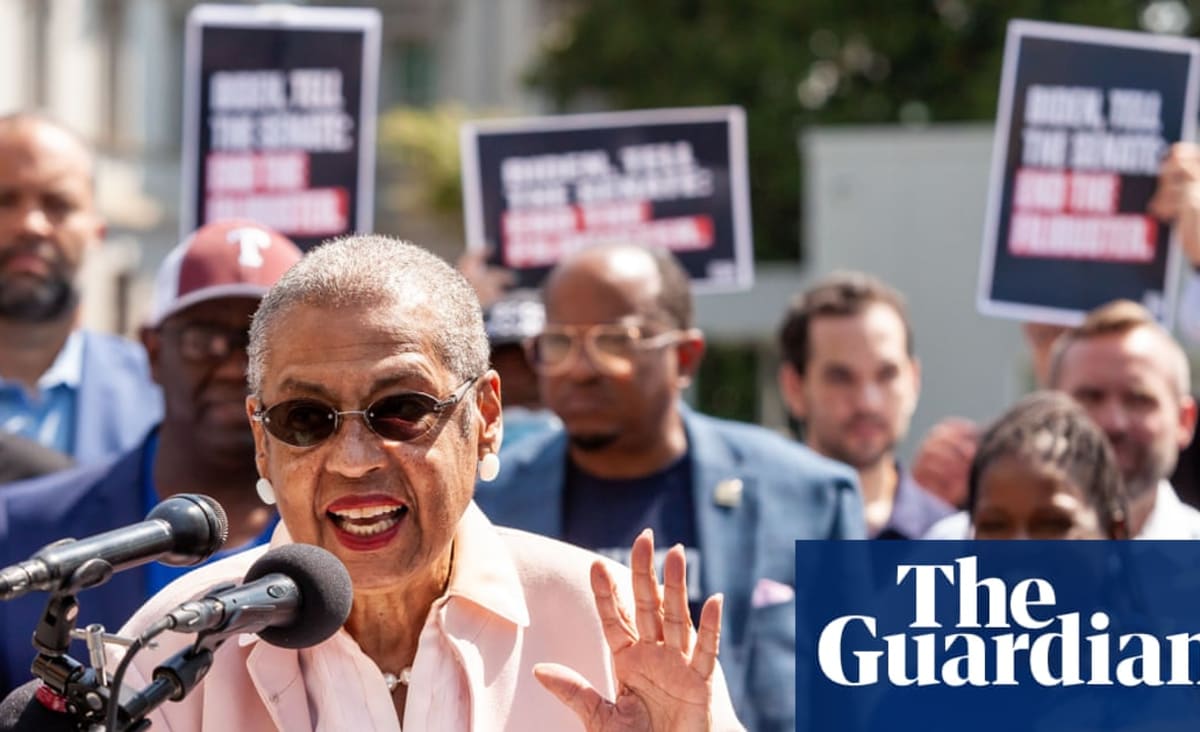
www.theguardian.com
Senate Republicans again poised to block sweeping voting rights bill
Obstructionist effort to stop Freedom to Vote Act likely to increase pressure on Democrats to do away with filibuster
Politics
Senate Republicans are again poised to block a sweeping voting rights bill on Wednesday, a move that will significantly escalate pressure on Democrats to do away with the filibuster, a Senate rule that has stymied the most significant priorities in Congress.
FILE - This June 1, 2021, file photo shows the State Capitol in Austin, Texas. Texas Republicans approved on Monday, Oct. 18 redrawn U.S. House maps that favor incumbents and decrease political representation for growing minority communities, even as Latinos drive much of the growth in the nation’s largest red state. (AP Photo/Eric Gay, File)
Texas Republicans pass voting maps that entrench power of whites
Read more
The bill, the Freedom to Vote Act, would impose significant new guardrails on the American democratic process and amount to the most significant overhaul of American elections in a generation. It would require every state to automatically register voters at motor vehicle agencies, offer 15 consecutive days of early voting and allow anyone to request a mail-in ballot. It would also set new standards to ensure voters are not wrongfully removed from the voter rolls, protect election officials against partisan interference, and set out clear alternatives people who lack ID to vote can use at the polls.
It also included a slew of new campaign finance regulations and outlaws the pervasive practice of manipulating district lines for severe partisan advantage, a process called gerrymandering.
The provisions are a pared-back version of an earlier voting rights bill that Republicans blocked from a vote in June. Republican senators are likely to block the bill using the same filibuster rule, which requires 60 votes to advance the legislation to a final vote. Meanwhile, there have been demonstrations outside the White House in recent weeks, and several activists have been arrested while speaking out in favor of the bill, including 25 arrests on Tuesday.
While most Democrats in the Senate favor getting rid of the filibuster, at least for voting rights legislation, the blockade will put immense pressure on two of the most significant remaining Democratic holdouts, Joe Manchin of West Virginia and Kyrsten Sinema of Arizona. There will be particular scrutiny on Manchin, who personally helped write the revised bill and has been seeking GOP support for it. It’s not yet clear if a lack of Republican support for any kind of compromise could force Manchin to finally support some kind of change to the filibuster but activists have been heartened by a letter he issued earlier this year in which he said “inaction is not an option” around voting rights.
Democrats are pushing the reforms at a particularly perilous moment for American democracy. Nearly three dozen bills were enacted in 19 states from January until the end of September, according to a tally by the Brennan Center for Justice. There have been more than 425 bills introduced with provisions that make it harder to vote. There are also growing concerns about Republican efforts to wield more influence over local election officials in certain states, which could wreak havoc in future elections.
There is pressure to immediately pass voting rights legislation because states are currently in the middle of the once-per-decade process of redrawing district maps. Absent new protections, new congressional and state legislative districts across the country could be unfairly tilted towards Republicans for the next decade. The GOP is also well positioned to take control of the US House of Representatives in 2022.
The bill is one of two critical pieces of voting rights legislation Democrats have championed. The other is the John Lewis Voting Rights Advancement Act, which would set a new formula that would restore federal oversight of elections to certain places and specific practices. That bill has also passed the House and is waiting for a vote in the Senate.
Joe Biden has offered full-throated support for both bills, but has not been willing to publicly pressure Manchin or Sinema on the filibuster. The White House is facing pressure from some civil rights groups who believe it is not being aggressive enough in pushing for the bills.
The White House released a statement supporting passing the bill on Monday, but said little about what it would do if Republicans blocked it.
“The administration is continuing to press for voting rights legislation to safeguard our democracy from these historic threats to constitutional freedoms and the integrity of elections through legislation, executive actions, outreach, the bully pulpit, and all other means available,” the White House said in a statement on Monday.
























































